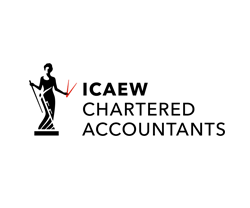January 8th, 2019
New Year Resolutions for Company Directors
2019 is now well under way and the festive cobwebs have, hopefully by now, been well and truly blown away. 2018 is a distant memory now so what resolutions should all company directors be making at this, or any other, time of year?
There are a number of great ways to provide tax-free benefits and save the company some tax in the process. Below, we’ve detailed how your new year resolutions can save you £3,500 of tax.
- Don’t waste tax allowances
Think about employing non-working family members, partners, spouses or civil partners in your business. If you pay them a reasonable wage for what they do for you then your company will get tax relief on the wage you pay them. They won’t pay tax either so it’s win-win. You’ll save £495 per year by paying a family member £10 an hour for 5 hours per week.
You can take the same approach with using up the £2,000 dividend allowance. Working family members can be given shares in the company and paid a dividend of up to £2,000 tax-free, saving a further £150 per year.
Care needs to be taken with both of these options, though, so always seek advice from a qualified accountant (such as ourselves).
- Save for your future
Employer, or company, pension contributions are a great way to save for your future and reduce your corporation tax bill at the same time.
There is an annual limit on how much can be paid into your pension pot but for those earning less than £150,000 this is still generous at £40,000 per year. Plus you can use unused pension allowances from the three previous tax years.
A £500 per month employer pension contribution would save you £1,140 per year and add £6,000 to your pension pot.
- Re-assess your life cover policy
There are a couple of great insurance products out there that are classed as tax-free benefits. This means that, unlike the vast majority of insurance products, you can get the company to pay the premium and you won’t be taxed on the value of the premiums paid.
If you are already paying for life cover personally then you should explore taking out a relevant life policy in the company and cancelling your personal policy. This will save you the cost of the premium and save your company tax. You would save £190 a year if you shifted a £1,000 premium into the company.
Tax isn’t the only benefit; you’ll also be safe in the knowledge that your family will receive a lump sum if the worst comes to the worst
- Speaking of insurance…
What would you do if you couldn’t work for a sustained period of time? Would you still be able to generate an income? For a lot of owner managed businesses, the answer to this second question is “no”.
Typically, you would protect yourself against this with products such as income protection or mortgage payment protection. You would need to pay for these products personally if you want to avoid taxable benefits in kind arising.
There is, however, a tax-free alternative which can be paid for by the company: executive income protection, or EIP. We’ve blogged on EIP before and we think it’s a must-have product, especially if you’re already paying for other income protection products outside of the company. Again, a £190 saving will arise on a £1,000 premium.
- It’s good to talk
If you haven’t already moved your mobile phone contract into the company’s name then you should do so as soon as possible. The cost of the phone and the monthly contract are completely tax-free with a £50 per month contract also saving you tax of £114.
Not only that, but if your company is VAT registered then it can reclaim the VAT in full leading to even more savings.
Mobile phones can also be provided to working members of your family, further increasing the benefit to you.
- (Not so) trivial benefits
The concept of trivial benefits has been around for a long time, but the rules have been firmed up in recent years. These rules are designed to cover an employer providing tea, coffee, stationery, flowers for bereavement, etc to employees without the employee incurring tax on the value.
No limits were stipulated in the original trivial benefit regime, but the 2016 overhaul introduced some very generous allowances. Individual transactions cannot exceed £50 and directors are allowed a maximum of £300 of trivial benefits in any given tax year.
Provided you don’t pay out cash and the benefit given is not work-related then the cost of the trivial benefit will attract tax relief. Think: birthday = £50 Amazon voucher and you can’t go too far wrong.
If directors max out their annual limit then that’s another £57 of corporation tax saved and you’ve received goods or non-cash vouchers to the tune of £300.
- Don’t forget other tax-free benefits
There are a whole raft of tax-free benefits in addition to trivial benefits. Consider instating annual events into your company diary, such as a Christmas night out or summer party.
The annual events must repeat each year and the total cost of all annual events can’t exceed £150 per head. A director and plus-one spending £250 in total on a Christmas night out would lead to £48 of corporation tax relief.
Also think about the following
- Pay a working from home allowance – worth up to £208 per year and will save you tax of £40
- Arrange for the company to pay for eye tests
- If glasses are subsequently required for monitor work only, then the company can also pay for the glasses tax-free
Don’t miss out
Just in this blog we have identified nearly £2,500 worth of tax savings per year and they are all really straight forward if you get the right help and advice.
Furthermore, if you were to swap some of your regular dividends for all of the ideas listed above then you would save over £1,000 of dividend tax as well.
So that’s £3,500 worth of tax savings plus saving for your future, protecting your family and securing your income thrown in, too.
So please get in touch if you’d like to explore your options regarding anything discussed above.





